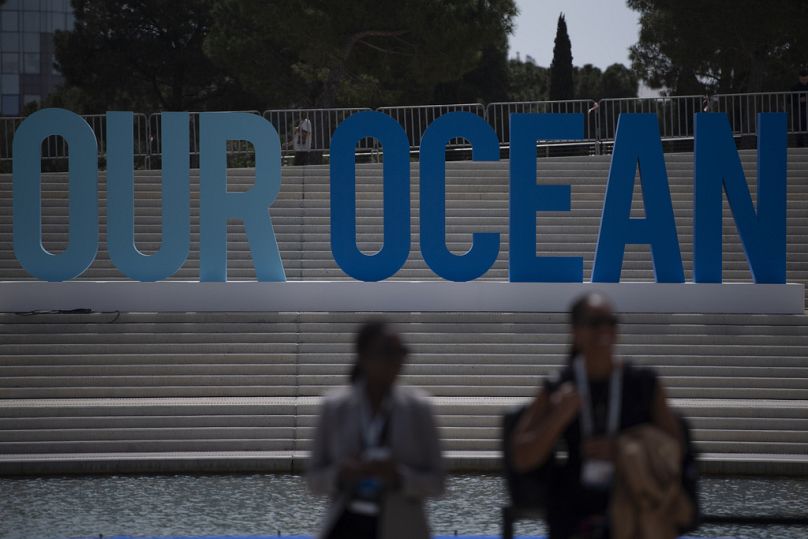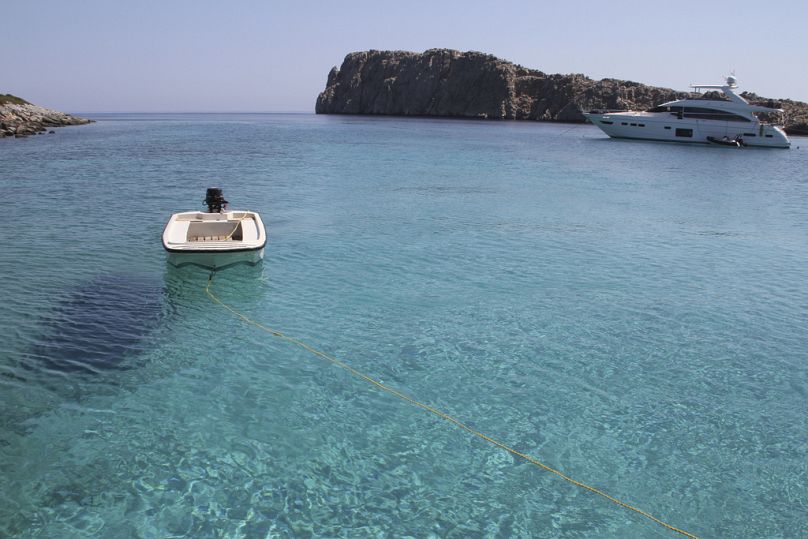Prime Minister Kyriakos Mitsotakis said it was a “historic moment for conservation in Greece”.
Greece will ban bottom trawling in all of its marine protected areas (MPAs) by 2030, Greek Prime Minister Kyriakos Mitsotakis announced today.
 ADVERTISEMENT
ADVERTISEMENT
 ADVERTISEMENT
ADVERTISEMENT
Speaking at the Our Ocean Conference in Athens, he said the country would become the first to bring an end to the damaging fishing practice in these protected areas. It will be banned in Greece’s three national marine parks - one of which is the largest in the East Mediterranean Sea - by 2026 with the rest following before the end of the decade.
Bottom trawling involves dragging heavy fishing nets across the ocean floor, which can destroy habitats and even release carbon into the ocean and atmosphere. Though there are restrictions in place throughout Europe, this is the first outright ban in all of one country’s marine protected areas.
“This historic move - a first for Europe - brings the country one step closer to ensuring that its marine protected areas can deliver the full potential of their benefits, which range from protecting biodiversity and storing carbon to boosting the tourism and fishing industries,” says the founder of National Geographic explorer in residence and found of its Pristine Seas initiative Enric Sala.
“The ocean floor is the world’s largest carbon storehouse. Leaving the seabed undisturbed is critical to global efforts to curb the climate crisis.
“Countries that are serious about keeping global temperatures at bay, conserving biodiversity and keeping their fishing industries vibrant must join Greece in ending this outdated practice in MPAs.”
Greece is spending €780 million on marine protection
The ban on the damaging practice comes as Greece hosts the Our Ocean Conference in Athens where more than 120 nations are gathered to discuss the biggest threats facing our oceans.
In total Greek government officials said announcements are set for new commitments amounting to about $10 billion (€9.4 billion) for environment-related projects.
Greece itself announced a swathe of pledges from plans to monitor and tackle marine pollution, prevent collisions between ships and large marine mammals, promote sustainable coastal tourism and more.
It also includes the creation of two new marine parks in the Aegean and Ionian seas. Greece has adopted in law the overall goal of protecting 30 per cent of its ocean area by 2030 - 10 per cent of which will be strictly protected.
As part of a €780 million investment, Prime Minister Mitsotakis said Greece was its MPAs by 80 per cent, covering one third of the country's territorial waters.
The Ionian Marine National Park will cover around 12 per cent of Greek territorial waters, safeguarding important sea mammals like sperm whales, Cuvier's beaked whales, striped dolphins and endangered monk seals. The South Aegean Marine Protected Area covers 6.6 per cent of territorial waters and is an important habitat for sea birds.
“Our ocean is literally sending us distress signals” Prime Minister Mitsotakis said.
"It has been a vital source of life and livelihoods. We have not been kind to it in return."
Turkey hits back against marine park plans
The announcement has caused tension with neighbouring Turkey, however. The country's foreign minister accused Athens of exploiting environmental issues for a geopolitical agenda when the plan for the parks was first revealed last week.
The countries, both NATO members, have been at odds for decades over a variety of issues, including territorial claims in the Aegean, and have reached the brink of war three times in the last 50 years.
Relations have improved somewhat over the past year following a period of heightened tensions that saw the countries’ warships face off in the eastern Mediterranean. But Ankara responded with annoyance to Greece's plan for a marine park in the Aegean.
“It is known that Greece has long been trying to benefit from almost every platform in the context of Aegean problems,” the Turkish Foreign Ministry said. “Despite the recent softening in our relations, it appears that Greece is exploiting environmental issues this time.”
Greece's foreign ministry retorted that Ankara was “politicising a clearly environmental issue.”












